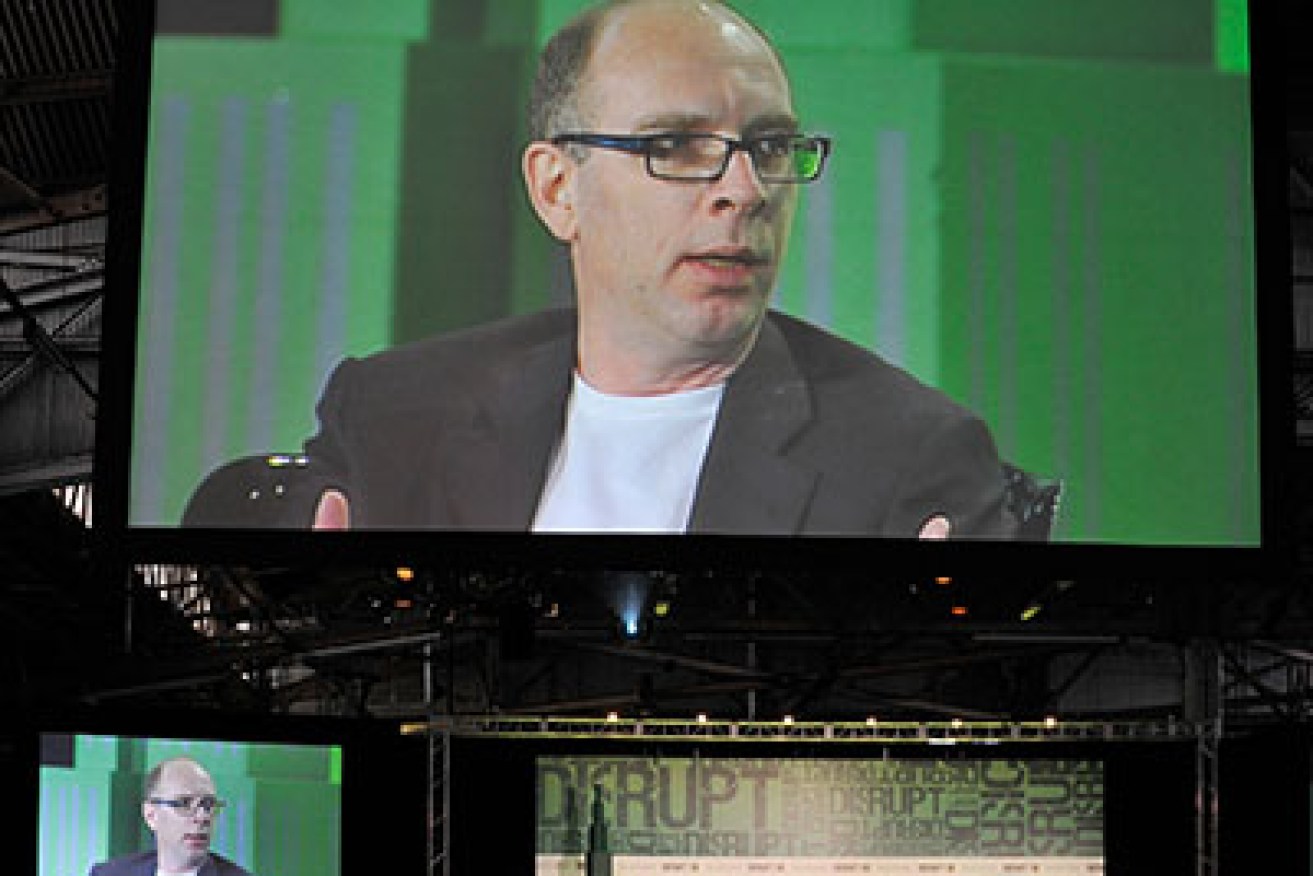One thing Abbott was completely right about


NEW YORK, NY - MAY 23: Press Critic Jay Rosen during TechCrunch Disrupt New York May 2011 at Pier 94 on May 23, 2011 in New York City. (Photo by Joe Corrigan/Getty Images for AOL)
Tony Abbott’s attack on the media in his final speech as Prime Minister drew attention to the insider culture and symbiotic relationship that exists between political reporters and politicians in Canberra.
He rightly claimed that the nature of poll-driven politics and a hungry media machine had produced “more commentary than ever before”.
“[We have] mostly sour, bitter character assassination,” he said, adding: “A febrile media culture has developed that rewards treachery.”
The 24-hour news cycle is such that by the time a media event has ended – and the news is quickly reported and distributed on social media – the cycle demands constant updates, new angles, analysis and then inevitably speculation.
• Scott Morrison tipped to become Treasurer
• Liberals extend lead in crucial Canning by-election
• Bolt wants Bernardi-led party
Insider information is the key to a coveted exclusive.
It is more complex than just blaming the messenger, as John Howard explained in his press conference.
“I think it has become more fragmented and I think there are differences that have been brought about by the more intensive and active media cycle. I’m not into blaming the media,” he said
Politicians too must take some blame for the system that has evolved with their reliance on spin doctors and media trainers who instruct them on how not to answer journalists’ questions.
This is most obvious on live television when politicians attempt to fudge, ramble and obfuscate, chewing up valuable seconds of airtime, knowing that the interview has a set duration.
A famous example of trying to beat the media at its own game was when Channel 7’s Mark Riley tried to interview then Opposition Leader Tony Abbott about his “shit happens” comment following the death of an Australian soldier in Afghanistan.
Mr Abbott refused to answer and instead performed a television cutaway or “noddy” for 28 seconds.
But Mr Abbott is not alone when he pleads with the media to resist publishing unattributed leaks and information.
As he said on Tuesday: “If there’s one piece of advice I can give to the media, it’s this: refuse to print self-serving claims that the person making them won’t put his or her name to. Refuse to connive or dishonour by acting as the assassin’s knife.”
The messenger as the assassin’s knife is an issue that has been hotly debated in journalism schools around the world.

Jay Rosen was dismayed that Australia had a television show named to celebrate Canberra insiders. Photo: Getty
New York University’s Professor Jay Rosen has gone as far as to say that politics as an inside game is an “impoverished idea” that has broken political coverage in the United States and Australia.
He writes of his dismay when he arrived in Australia five years ago to discover that the national broadcaster even had a program called Insiders.
A guest of the Walkley Foundation, he was interviewed on Lateline about his theories on political journalists that place themselves on the inside looking at the process like political operatives do.
He famously asked Leigh Sales if it was true that a program called Insiders actually existed and when she confirmed that it did his response was an incredulous ,”That’s remarkable”.
A year later he returned for a keynote address at the New News Conference as part of the Melbourne Writer’s Festival and asked the audience if they agreed with him that it was “a little strange” that a political program would refer to its panellists as insiders.
“Promoting journalists as insiders in front of the outsiders, the viewers, the electorate … is a clue to what’s broken about political coverage in the US and Australia,” Rosen said. “Here’s how I would summarise it: Things are out of alignment. Journalists are identifying with the wrong people. Therefore the kind of work they are doing is not as useful as we need it to be.”

Politicians and journalists have a co-dependent relationship. Photo: AAP
Former ABC investigative journalist Andrew Fowler takes a similar line in his recent book The War on Journalism where he examines the war waged from outside the profession and the war from within.
“It’s part of the co-dependent relationship which positions both journalists and politicians as players in a game where discussion about how a government policy will play out with the public is deemed to be more important than whether the policy is fair or will work at all.”
Fowler chronicles the pitfalls of relying on the insider for leaked exclusives, like the New York Times’ Judith Miller and her role in publicising the now discredited revelations on Iraq and its hidden Weapons of Mass Destruction.
He says the symbiotic relationship between the media and government is the reason why whistleblowers like Edward Snowden eschewed the big media corporations and chose outsiders like Glenn Greenwald and the Scott Trust-owned Guardian to get out his story.
Says Fowler: “The insiders of the fourth estate, with their cosy and often self-serving relationships with powerful institutions, were being overtaken by the outsiders: those who did not conform to the usual journalistic reliance on information drip-fed to them from the government.”
Fowler reminds us that at the height of the Watergate scandal, Washington Post editor Ben Bradlee instituted a “no more unnamed sources” policy in the newsroom to fend off White House misinformation. It lasted all of two days.
But the last word on the scourge of unnamed sources must go to Margaret Thatcher in her famous 1981 stoush with the then 60 Minutes reporter George Negus.
During the interview where he constantly put “some people say” questions to her, he asked her response to claims people had stopped him in the streets to complain that she was inflexible and pig-headed.
The ‘Iron Lady’ had had enough and in her calm and stern lowered voice demanded: “Who has stopped you in the streets and said it? Who, where and how many?”
Tony Abbott must now be asking himself the same question.
* Helen Vatsikopoulus is a lecturer in digital journalism at University of Technology Sydney. She has been a documentary film maker, reporter, producer and presenter and worked at SBS, the ABC and the Australia Network. She won the Walkley Award for Best International Report in 1992 and has won two UN Australia Media Peace Prizes.









